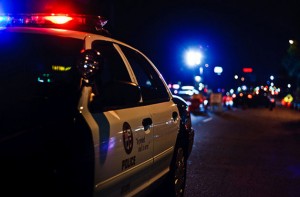 Lower Merion Township is one of the most affluent townships in the Commonwealth of Pennsylvania. It is composed mostly of the towns of Ardmore, Narberth, and Bala Cynwyd and is very close in proximity to Villanova and St. Josephs Universities. Additionally, Lower Merion Township has jurisdiction over a portion of the Schulykill Expressway (I-76) at the Green Lane/Belmont Avenue exit. Montgomery Avenue and Lancaster Avenues are much traveled roads within the township and there is a great deal of commerce strewn along these roadways. In short, Lower Merion Township represents an unusually high concentration of wealth, population, and economic activity. Consequently, Lower Merion Township expends an inordinate amount of police resources on utilizing sobriety checkpoints as a way apprehending those suspected of DUI.
Lower Merion Township is one of the most affluent townships in the Commonwealth of Pennsylvania. It is composed mostly of the towns of Ardmore, Narberth, and Bala Cynwyd and is very close in proximity to Villanova and St. Josephs Universities. Additionally, Lower Merion Township has jurisdiction over a portion of the Schulykill Expressway (I-76) at the Green Lane/Belmont Avenue exit. Montgomery Avenue and Lancaster Avenues are much traveled roads within the township and there is a great deal of commerce strewn along these roadways. In short, Lower Merion Township represents an unusually high concentration of wealth, population, and economic activity. Consequently, Lower Merion Township expends an inordinate amount of police resources on utilizing sobriety checkpoints as a way apprehending those suspected of DUI.
Typically, when a township has pre-approved their police department (such as the Lower Merion Police Department or the Pennsylvania State Police) to set up a checkpoint, they must be mindful the checkpoint must adhere to certain standards. Some (but not all) of these standards:
- The checkpoint must be set up in a location that history has shown is likely to be traveled by drunk drivers
- The checkpoint cannot be overly invasive
- The vehicles that are stopped must be done in a systematic, and not random, fashion (i.e. a stop of every fourth car that passes, every fifth car that passes, etc., and not just a vehicle that looks “suspicious”)
- The police must keep records of how the checkpoint is carried out.
These are just some of the requirements that need to be met in order to administer a lawful checkpoint.
Knowing the above, there is a burgeoning amount of case law decided every year defining the law on what does, and does not, constitute a lawful checkpoint. Consequently, the standard is fluid and ever-changing. It’s important that a DUI lawyer stay up on the law in this crucial area. Also please know that if you, or a loved one, are arrested for DUI as a result of going through an unlawfully conducted checkpoint, that the case may be thrown out.

